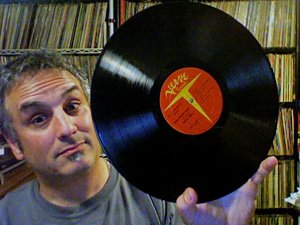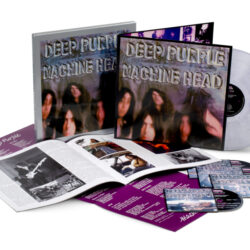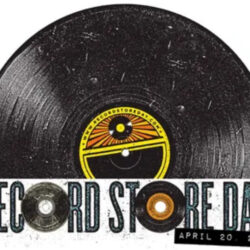It’s the time of year for saving money!
In the world of power pop, there are a bunch of bands that have achieved a certain “legendary” status among aficionados: groups which never really had their music played on mainstream radio, groups which never really saw their music reach a mass audience. In ye olden days before this music became tagged as the genre “indie rock,” the economies of scale employed by the star-making machinery known as “the music business” didn’t fare well for many of these artists. Many wallowed in obscurity, eventually breaking up the bands simply because of the financial constraints and the sizable debt they then owed the record labels.
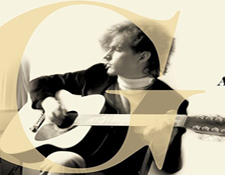 To paraphrase a comment a friend of mine once said — he, one of these critically acclaimed but financially under-appreciated musicians — “try taking legendary status to the bank.”
To paraphrase a comment a friend of mine once said — he, one of these critically acclaimed but financially under-appreciated musicians — “try taking legendary status to the bank.”
Game Theory is one of these bands — now enjoying reissues of their seminal early-’80s recordings which have long been out of print. Their ascent on the scene eventually landed them in line with Mitch Easter, the same producer who was working with indie rock’s first superstars, R.E.M. The group got to tour with some big names in the industry. But alas, they came and went like so many others, and Scott Miller went on to form another influential but challenging band, the Loud Family (which I suspect will eventually get reissued as well).
Anyhow, here we are many decades on, Scott Miller has passed away (RIP), and — as if on cue — his music has been magically revived for a new generation to discover. Curious how that seems to happen a lot in the music biz. Music commerce seems to like its dead rock stars almost more than thriving living ones …
But seriously, why did it take so long for this stuff to get reissued? There is some fabulous music here and from everything I’ve read and heard from friends and fans, Miller left significant impression on many other musicians whose lives he touched.
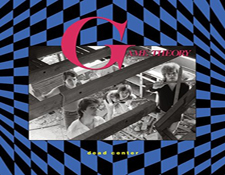 It is really too bad that these reissues couldn’t have been put out while he was alive to enjoy this lovely renaissance.
It is really too bad that these reissues couldn’t have been put out while he was alive to enjoy this lovely renaissance.
(sigh)
Well … all that said … now we have several CDs and a some freshly minted colored vinyl 10-inch EPs to explore. There is even an LP by Game Theory reissued by the good folks at Omnivore Records.
And the pop music world rejoiced!
In general, the reissues sound real good, both on CD and on the vinyl samples I’ve gotten my hands on. The 10-inch EPs are mostly on nice colored vinyl pressings (one had some warp issues, but other than that it sounds fine). The CDs are comprehensive with lots of bonus tracks including live performances and demos. It’s all cool stuff, chockfull of strummy-jangly guitars, propulsive drums, quirky rhythms and unconventional song structures.
The sound is very clean with a bit of that earl-’80s ultra-bright sound that may be due to any number of things, from stylistic production choices to actual recording medium used (not sure if these were done digitally or analog) to the limitations of the studios used (some of these were early self-produced recordings done on a low budget). And then there is the impact of the CD process which can inadvertently make a bright recording sound even brighter.
It is what it is …
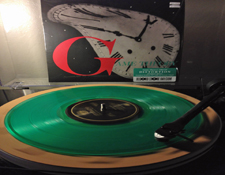 So all you audiophile pop music fans out there, do keep an open mind when exploring this music, which is what this is about ultimately.
So all you audiophile pop music fans out there, do keep an open mind when exploring this music, which is what this is about ultimately.
Speaking of that, how do I like Game Theory’s music? Good question. I’ll be honest, It’s growing on me.
Game Theory was admittedly a band I missed out on the first time ’round for numerous reasons. Listening to it in the ’10s with a relative outsider’s perspective — I have no personal emotional connection to this music from back in the day, like I do with the likes of Marshall Crenshaw, Elvis Costello, the Bongos and Rockpile. Miller’s writing style is certainly curious, interesting and at times quite different. His thin voice is an acquired taste as well, so don’t go into this expecting a big voice like Eric Carmen in the Raspberries.
]]>I have read that the band was closely aligned with the so called “Paisley Underground” scene in LA but I don’t really hear much in the way of psychedelia going on here. If anything I hear more of a bubblegum pop influence (so think the Lemon Pipers or the Hollies vs. Cream or Iron Butterfly). Perhaps a more angular Big Star …
To that, the tunes that I like here a bunch ar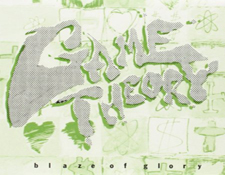 e the ones with the more direct sense of hooks and clear melody lines such as “Shark Pretty” “Nine Lives to Rigel Five,” from the CD-only album Dead Center (also found on the 10-inch EP called Distortion).
e the ones with the more direct sense of hooks and clear melody lines such as “Shark Pretty” “Nine Lives to Rigel Five,” from the CD-only album Dead Center (also found on the 10-inch EP called Distortion).
Exploring these Game Theory records, things jump out at you at different moments. As I am editing this I’m re-listening to their 1983 EP Pointed Accounts of People You Know and the side-two opener “I Wanna Get Hit By A Car” just grabbed me as a song that might have influenced Morrissey and the Smiths. “Life in July” is a fun little slice of synth pop, recalling no less than the Silicon Teens, the first record by Mute Records founder Daniel Miller (no relation to Scott as far as I know).
When listening to the music of Game Theory (and many other of the post-punk pop songwriters that came out of the post-New Wave / Punk era of the late-’70s), I’ve noticed that there was less and less reliance on “the hook” to make a song happen (an essential part of most power pop type songs). Perhaps it was the influence of the singer/songwriter movement that many people were also exposed to in the 1970s, where a performer would start strumming some simple chord patterns and ramble their vocalese lyric tales over them, sometimes with a distinct enough melody to stand on its own. More often than not, that was not the case. It sounded nice, but also could become more forgettable.
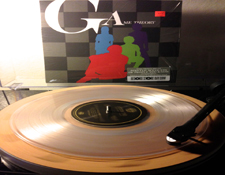 Thus, if I have any trouble with Game Theory’s records is that many of these songs are often less direct, substituting quirky, complex rapid chord changes for a distinctive hook. That’s not to say that there aren’t hooks here — no, when Miller’s melodies and hooks are at their strongest it all works just great. However, sometimes the songs lapse into a sort of same-y-ness that challenges the listener’s attention.
Thus, if I have any trouble with Game Theory’s records is that many of these songs are often less direct, substituting quirky, complex rapid chord changes for a distinctive hook. That’s not to say that there aren’t hooks here — no, when Miller’s melodies and hooks are at their strongest it all works just great. However, sometimes the songs lapse into a sort of same-y-ness that challenges the listener’s attention.
This phenomenon is not unique to Game Theory — I have found this issue with records by other bands I like a lot (such as the Bongos, for example). In their quest to sound different, they seemingly intentionally abandoned quintessential pop song writing techniques that date back to the earliest days of commercial music. That often put the artist at odds with commercial radio and more mainstream oriented fans alike.
Still, there are many really good Game Theory songs here, so I do encourage you to explore and listen!
These reissues of their initial run of albums — Blaze of Glory, Distortion, Pointed Accounts of People You Know, Real Nighttime and (the French-version compilation called) Dead Center — all sound uniformly solid. Each CD comes with a nice informative booklet with photos of the band replete with essays by people who were there during the band’s ascent.
They CDs come packed with all sorts of great bonus tracks which are more than throwaways including some really nice solo demos by Miller.
Don’t miss his spot on acoustic demo of Badfinger’s “No Matter What” (bonus track on Dead Center) and his live take on Gerry Rafferty’s “Baker Street” (on the Real Nighttime album).
You can find these Game Theory albums on Amazon and also at Omnivore Records website.
A whole alternate universe of once lost pop music awaits you!
